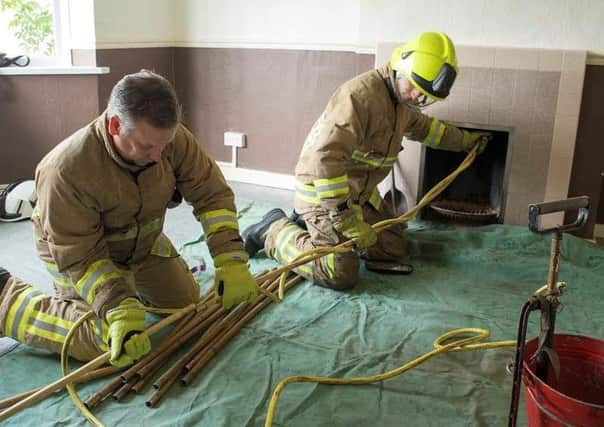Blaze damages houses


The fire in Arlesey Road, caused smoke logging to an adjoining property because of a suspected defect in the brick work.
Firefighters used buckets of water to put out the fire.
It was one of four chimney fires in the county over the weekend.
Advertisement
Hide AdAdvertisement
Hide AdThese fires are often caused by blockages in flues such as a bird’s nest, overloading the open fire or a build-up of combustible material. This occurs when all the fuel (coal, wood etc.) is not burnt but gets stuck in the chimney or flue. Chimney fires often weaken the chimney breast, other walls and can ignite other parts of the house.
To prevent chimney fires householders should:
>Have their chimney swept before lighting it after a long period of not being used (i.e. during the summer and autumn);
>Ensure chimneys are swept regularly by a professional chimney sweep
>Between “sweeps” keep chimneys, flues and appliances clean and well maintained
Advertisement
Hide AdAdvertisement
Hide Ad>Always use a fire guard to protect against flying sparks from hot embers
>Store fuel away from the appliance so sparks do not set it alight
>Ensure the fire is completely out before going to bed or leaving the house
>Ensure good quality and appropriate fuel is used
>Avoid blocking air vents or air bricks or interrupting the air supply
Advertisement
Hide AdAdvertisement
Hide AdBeds Service Operational Commander Ian Evans, Head of Operations, said: “Always get your chimney swept before you light it if it’s been left dormant for some time as blockages can occur.
“Home insurance policies often state you should take reasonable care of your chimney and for thatched properties could specify how often your chimney is swept.”